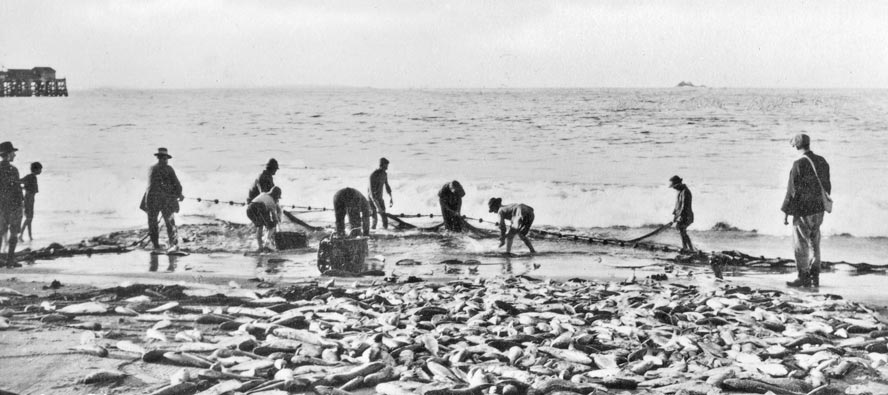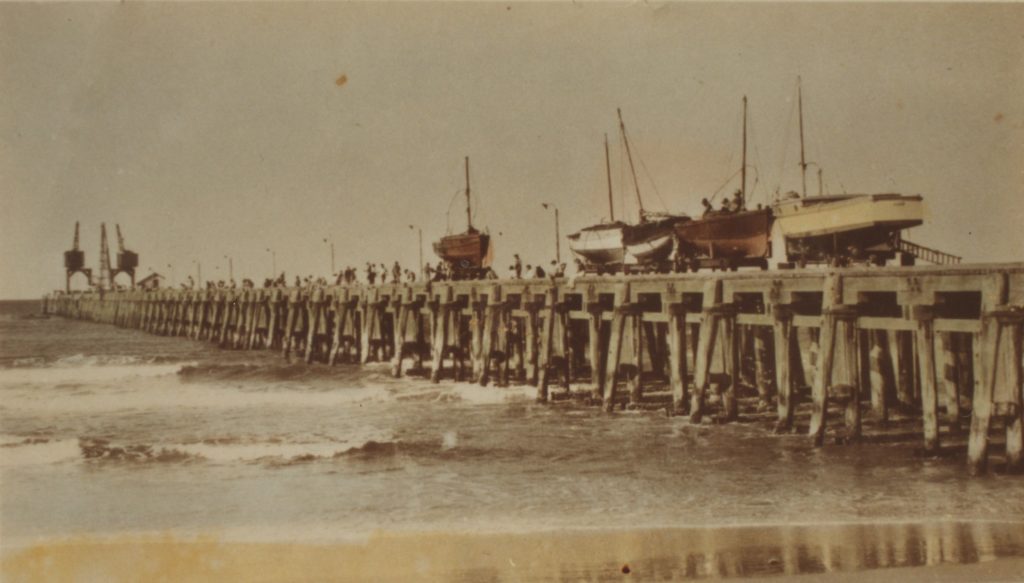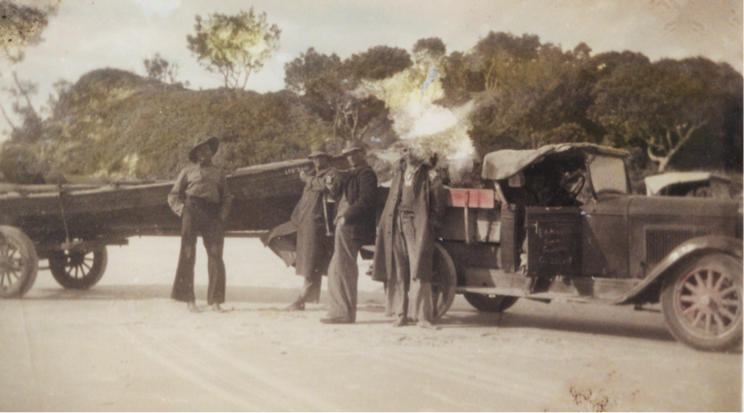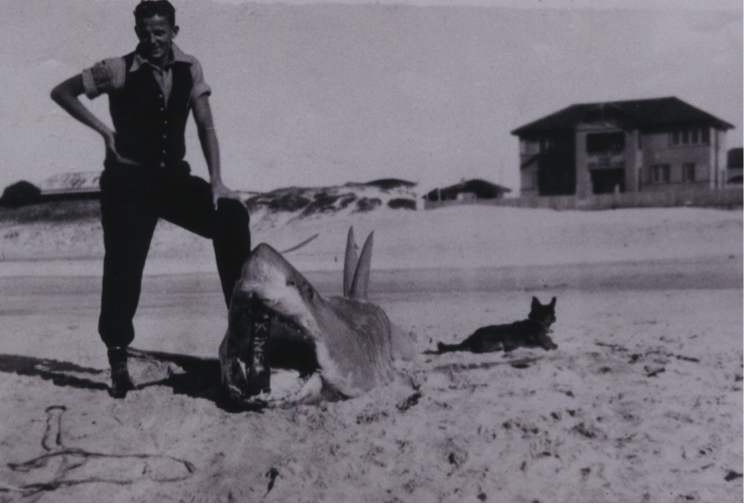Site 11: Fishing
PREV NEXT
From 1888 when the “old jetty” was completed fishermen in small boats commenced commercial fishing in Byron Bay; initially for local sale then later for export to Australian markets. During the “mullet run” spotters on Cape Byron would relay the location of the migrating fish to the waiting fishermen who ran their nets around these huge schools catching tonnes of fish in a single haul. The fishermen dragged their bulging nets up onto the beach, often allowing locals to “help themselves” before selling the remainder to the processing plant. From the early 1920’s their catch was processed at the first commercial fish processing plant in Fletcher Street which sold “fresh,” iced, canned and smoked fish.

A large haul of fish on Clark’s Beach -1920’s. (Source EJW RTRL
After WW2 newly identified prawning areas, reef fishing spots and schooling sites provided greater fish variety (bream, tailor, snapper, perch jewfish – all caught on handlines), a longer season, larger catches and improved economics. This catch was processed at the new Byron Bay Fisherman’s Cooperative depot in Lawson Street.
When the “new jetty” was completed in 1928 the fishing boats used it as a base. Their boats were hauled on to it for servicing and protection in severe storms. Prior to the cyclone of February 1954 the fishing fleet was hauled onto the jetty out of harm’s way but this major storm destroyed much of the jetty and 23 of the 32 fishing boats.

Fishing boats on the jetty (Source RTRL)
The jetty was never repaired and without this shelter most of the fleet relocated to the Brunswick River but their catch was transported to and processed at Byron Bay until 1964. The last commercial fishing boats left Byron Bay in 1966.


Shark caught in front of the Surf Life Saving Club
Recreational and sport fishing from beach, jetty and boats have been an important part of local fishing history. Many large sharks were caught from the jetties and the beach. Keen amateurs have launched their boats from the ramp at “The Pass” for nearly 100 years; releasing and retrieving their boats through the surf.